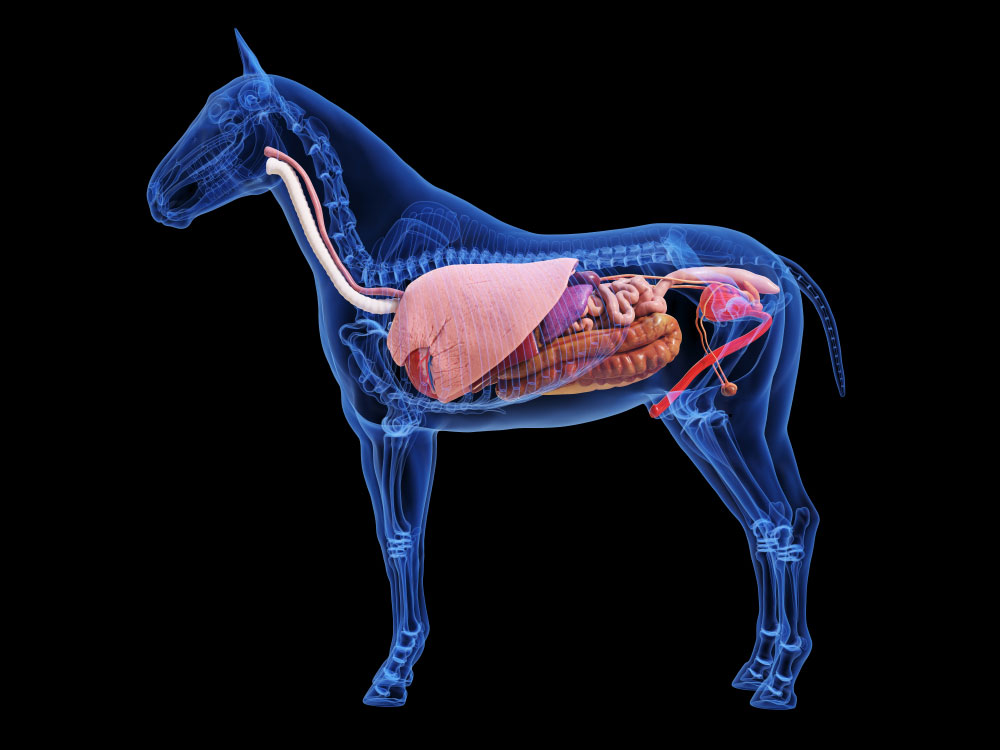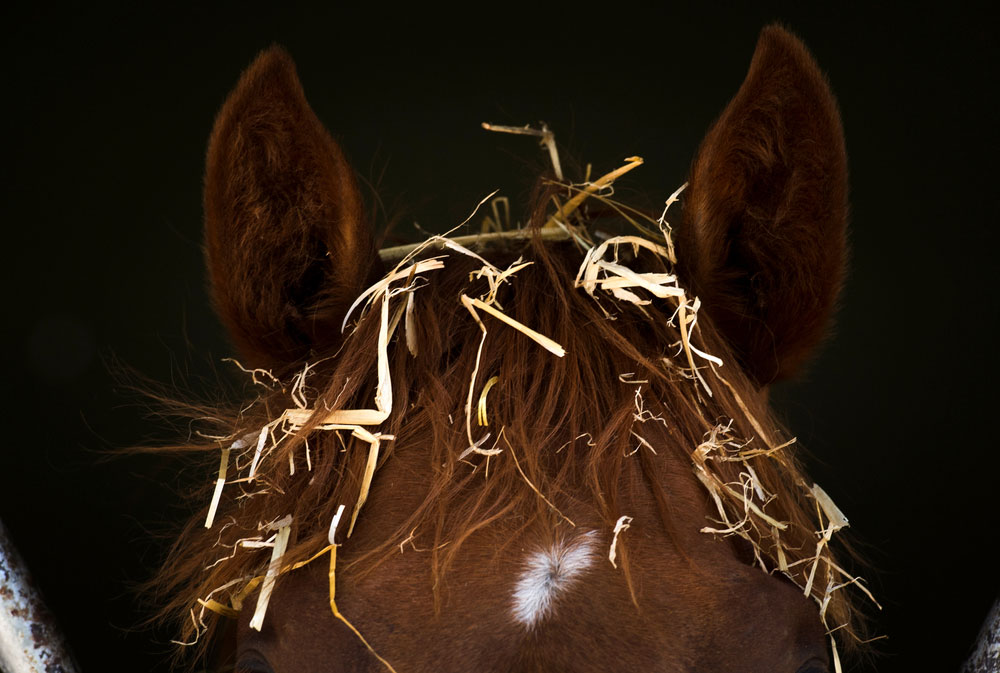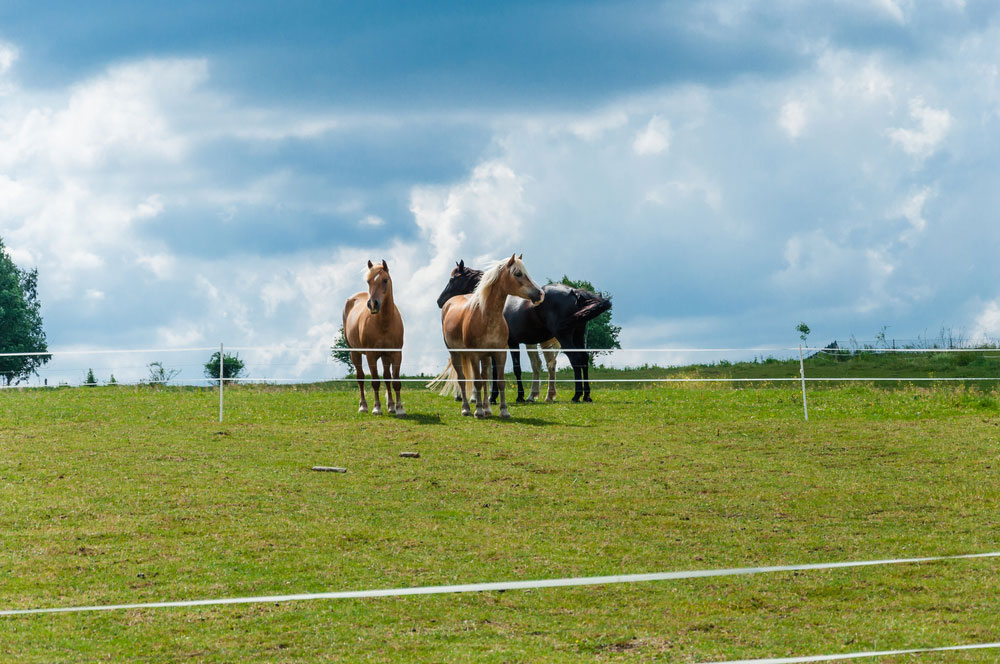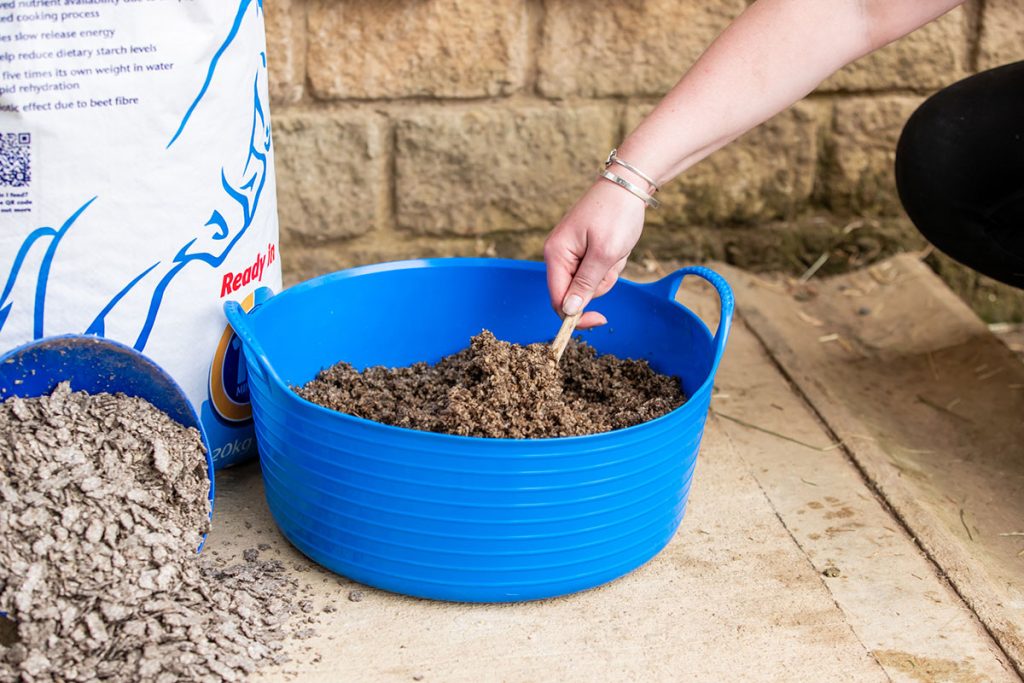By Professor Nicola Menzies-Gow, Professor in Equine Medicine, Royal Veterinary College.
We all know that certain individual horses and ponies seem to live on fresh air and getting them to lose weight can be extremely challenging. The ideal diet for these easy keepers or good doers and/or those that need to lose weight is one that is based primarily on fibre and is low in starch and sugar as this minimises calorie intake whilst allowing the horse’s hindgut to ferment the fibre to produce some of the nutrients that the horse needs. This is how your horse’s digestion is designed to work.

First you need to start by recognising that your animal is a good doer and/or needs to lose weight. This in itself can be tricky as owners often underestimate their animal’s body condition; the same is true for pets such as dogs and cats. Once you have acknowledged this, you need to formulate a diet that will work for you and your horse as everyone’s situation varies. You need to take into account factors such as amount/quality of grazing available, whether your horse has any medical conditions such as severe equine asthma or laminitis that will influence the amount of time they can spend stabled or out at grass, how often you can feed your horse and numerous other issues. You also need to think about what bedding you horse is on, as horses stabled on straw will often eat a surprising amount of it and this will still provide some calories. It is a good idea to involve either your vet in the planning or contact the careline for the company that makes your usual feed for advice.

Horses are designed to spend about 16 hours a day foraging for food and they evolved to live on poor scrubland such as the Welsh hills or Dartmoor. This is obviously very different from the pastures that most UK horses and ponies graze. If your horse needs to lose weight or is at risk of laminitis, then you will have to restrict their grass intake or even consider taking them off the grass altogether so that you can control their calorie consumption to aid weight loss or minimise sugar intake to help prevent laminitis. If you do allow them to graze, you will need to factor in how many calories and how much sugar they are eating whilst out at pasture when deciding how much of other feedstuffs to provide.

A horse that needs to lose weight should be fed about 1.5% of its current body weight in hay as this is long fibre (less if they are eating lots of grass). Haylage should be avoided unless your horse cannot eat hay for other medical reasons such as severe equine asthma as it is more palatable (meaning your horse will want to eat more if it) and it is more of a risk for laminitic animals due to the effect it has on metabolism. The hay should be low in sugar; if you cannot get it analysed, then it should be soaked to remove some of the sugar. Soaking will also remove a lot of the vital vitamins and minerals, so you will need to feed a low-calorie feed balancer to replace these. Some horses are happy on a hay only diet, but if they need breakfast/lunch/dinner for any reason, then this should also be based on fibre and the amount of hay fed reduced to take these extra calories into account. Possible products include those based on chaff and/or unmolassed sugar beet (as that is the fibre part that is left behind after the sugar has been removed).

The unmolassed sugar beet should be soaked before feeding according to the feed company’s recommendations; the additional water has the added benefit of increasing the bulk without increasing the calories so the horse will feel fuller for longer whilst consuming less calories – a win-win situation!




